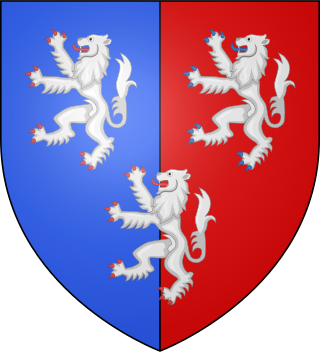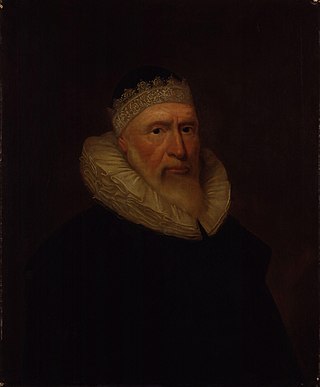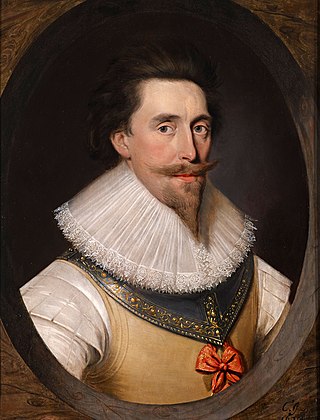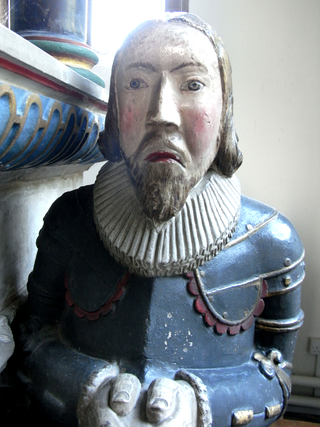Related Research Articles

Sir Edward Herbert of Aston in Montgomeryshire, was an English lawyer and politician who sat in the House of Commons at various times between 1621 and 1641. He was Attorney-General under King Charles I.

Sir Julius Caesar was an English lawyer, judge and politician who sat in the House of Commons at various times between 1589 and 1622. He was also known as Julius Adelmare.
Sir Robert Killigrew (1580–1633) was an English courtier and politician who sat in the House of Commons at various times between 1601 and 1629. He served as Ambassador to the United Provinces.

Lionel Cranfield, 1st Earl of Middlesex was an English merchant and politician. He sat in the House of Commons between 1614 and 1622 when he was raised to the peerage as Baron Cranfield.

Sir Richard Wynn, 2nd Baronet was a Welsh courtier and politician who sat in the House of Commons at various times between 1614 and 1649.

Francis Fane, 1st Earl of Westmorland, of Mereworth in Kent and of Apethorpe in Northamptonshire was an English landowner and politician who sat in the House of Commons between 1601 and 1624 and then was raised to the Peerage as Earl of Westmorland.

Sir Edward Barrett, 1st Lord Barrett of Newburgh,, Bt, was an English politician.
Sir William Armine, 1st Baronet was an English politician who sat in the House of Commons at various times between 1621 and 1651. He supported the Parliamentary cause in the English Civil War.

Robert Radclyffe, 5th Earl of Sussex, KG was an English peer.

Sir Thomas Coningsby was an English soldier and Member of Parliament, notable for his diary of military action in France in 1591, and his feuds over local representation in Herefordshire.
Sir Francis Barrington, 1st Baronet of Barrington Hall, Essex was a Puritan activist and politician, who was MP for Essex from 1601 to 1604, then 1620 to 1628.

Sir Francis Popham (1573–1644) of Wellington, Somerset, was an English soldier and landowner who was elected a Member of Parliament nine times, namely for Somerset (1597), Wiltshire (1604), Marlborough (1614), Great Bedwin (1621), Chippenham 1624, 1625, 1626, 1628–29), and for Minehead (1640–1644).
Edward Radclyffe, 6th Earl of Sussex was an English politician who sat in the House of Commons between 1586 and 1611 and later succeeded to a peerage.

Sir Thomas Jermyn (1573–1645) of Rushbrooke, Suffolk, was an English courtier and Royalist who served as a Member of Parliament between 1604 and 1640.

Thomas Wise of Sydenham in Devon, was an English politician who sat in the House of Commons of England at various times between 1625 and 1641.
Sir Thomas Cheek, Cheeke or Cheke was an English politician who sat in the House of Commons in every parliament between 1614 and 1653.
Sir Thomas Lawley, 1st Baronet was an English politician who sat in the House of Commons between 1625 and 1629.

Sir Gilbert Hoghton, 2nd Baronet was an English politician who sat in the House of Commons variously between 1614 and 1640. He was a Royalist leader during the English Civil War.
Sir Walter Devereux was an English politician who sat in the House of Commons at various times between 1614 and 1641. Walter was a close companion of his half-brother, Robert Devereux, 3rd Earl of Essex, and played a significant role in Essex's actions on behalf of Parliament.
Sir Arthur Harris was an English politician who sat in the House of Commons at various times between 1624 and 1629.
References
This article relies largely or entirely on a single source .(January 2015) |